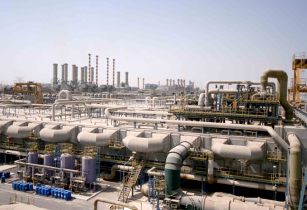Dubai Electricity and Water Authority (DEWA) has awarded the contract worth US$217mn for the third phase of K-Station at Jebel Ali Power Station to Spanish company Duro Felguera
The project includes the supply, installation, testing and launch of two F-type gas turbines from Siemens AG that will produce 590MW at 50?C. DEWA commented that the turbines are planned to be operational by the second quarter of 2019.
K-Station is part of the Jebel Ali power and water desalination station, and one of the main plants providing Dubai with reliable, efficient and high-quality electricity and water services.
The new phase is aimed to meet the continued growth of demand for electricity and the needs of urban, economic and ambitious social projects, and works to establish the status of Dubai as a leading model in the region for its effective and efficient electricity and water infrastructure, to meet current and future requirements.
K-Station uses gas turbines to generate power and is one of DEWA?s main projects to meet the increasing demand for electricity. Remotely operated, the station is fully automated and features state-of-the-art technologies and control systems, as well as the latest operating technologies which minimise emissions. K-Station only uses natural gas.
The current generation capacity of K-Station is 948MW. After the completion of the third phase, 590MW will be added, bringing the station?s total production capacity to 1,538MW. On completion of this project in 2019, DEWA?s total installed capacity will be 11,990MW, including clean energy.
?We are working to achieve the Dubai Clean Energy Strategy 2050, to employ an environmentally-friendly energy mix based on the following ratios: 25 per cent solar energy, seven per cent nuclear power, seven per cent clean coal, and 61 per cent gas by 2030, with a gradual increase in the use of clean energy in the mix so that it reaches 75 per cent by 2050, making Dubai the city with the smallest carbon footprint in the world,? said Saeed Mohammed Al Tayer, managing director and CEO of DEWA.






